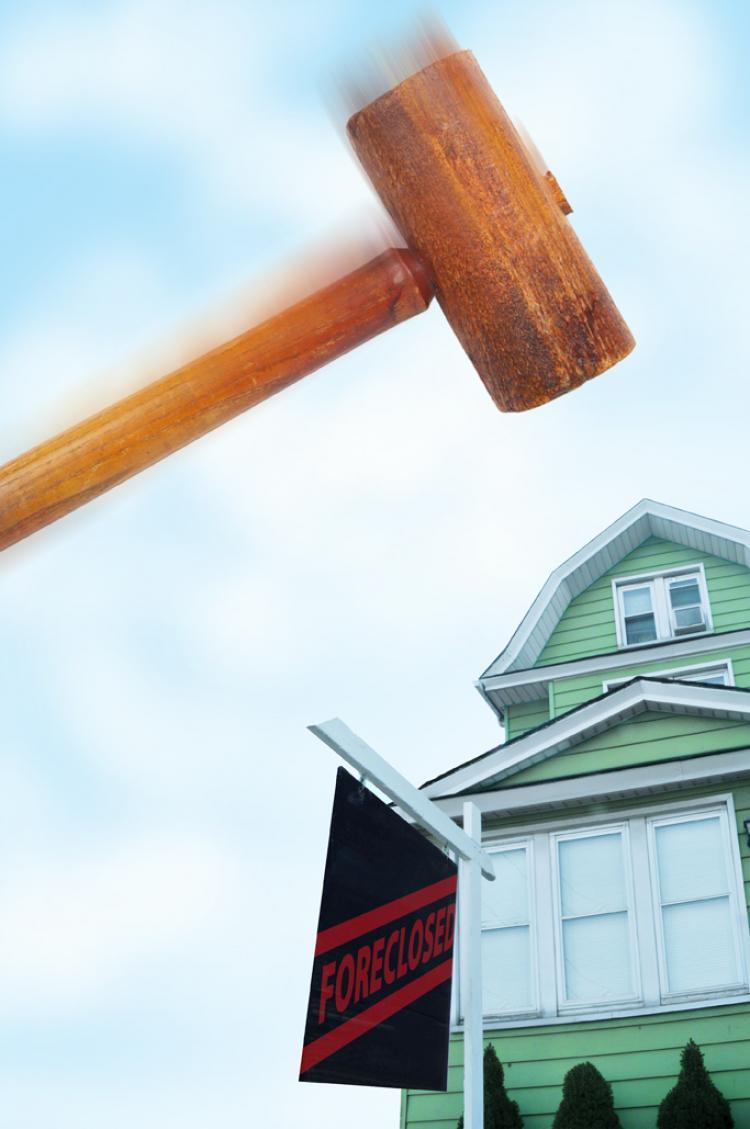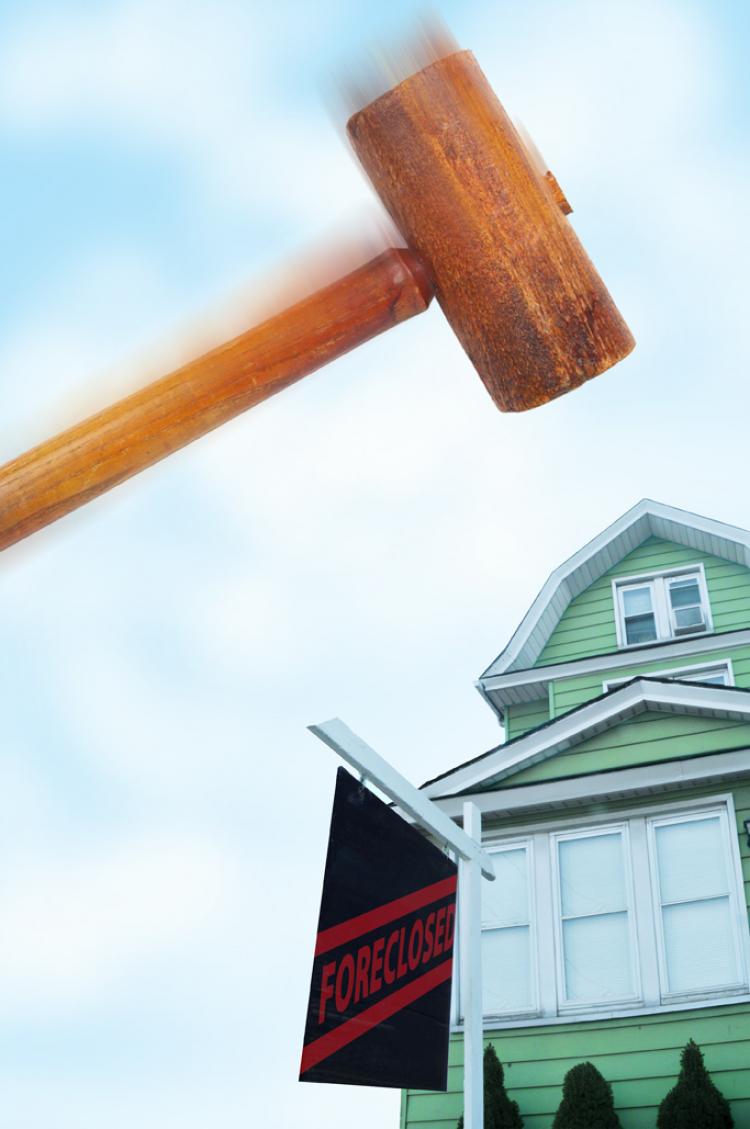Foreclosures are still stacking up around the country, and experts are saying there is more to come.
“We won’t see a decline until 2011,” said Rick Weinberg, spokesman for auction company Real Estate Disposition Corp. (REDC).
“Foreclosures will be increasing dramatically,” he said. “This is the worst foreclosure crisis in US history.”
REDC totaled $10 million of auction sales in New York on June 7 at the Grand Hyatt, New York. Of the 113 houses under the hammer, some of the best deals had price drops of 75 to 95 percent.
“It went extremely well,” Weinberg said in an email. A place in Newark sold for $12,500—95 percent less than its previous high value of $280,000; 132-134 Scribner Av. in Staten Island sold for $63,000—90 percent less than its previous high value of $595,000; 52 Gladys Av. in Hempstead sold for $136,500—75 percent less than its previous high value of $565,000, Weinberg said.
“REDC has auctioned more than $5 billion in distressed properties since May ‘07,” he said. “We’re putting people back into homes.”
The company conducts auctions all over the world and currently holds three to four per week. Next stops on their auction tour include Colorado, Utah, Arizona, Florida, and Las Vegas.
Foreclosure filings were reported on 14,681 Las Vegas properties in May—one in every 54 housing units in Las Vegas—and more than seven times the national average, according to RealtyTrac, the leading online marketplace for foreclosure properties. The city’s foreclosure activity increased 4 percent from the previous month and 78 percent from May 2008.
Will Berry, JD President of Foreclosure Rescue Team LLC, in Colorado said foreclosures in that state were worse two or three years ago.
“It was one of the worst in the nation,” he said. “Before this big foreclosure crisis hit, it hit Colorado immediately.”
Colorado has a different sort of rhythm with the rest of the country, said Berry. His company negotiates short sales and solves foreclosure problems for homeowners.
Colorado sits eighth on RealtyTrac’s foreclosure statistics.
Berry said the numbers of homes in the foreclosure process have decreased from 35 to 40 last year to about 15 currently.
While ninety percent of the homes Berry gets through his company are sold, there were times when an agreement could not be reached with the lender.
“And sometimes the buyer walks away from the transaction at the last minute and leaves the seller hanging,” he said, adding that, “Usually the lenders are cooperative because they don’t really want the property.”
He said many brokers are noticing that the rate of foreclosures seems to be slowing and prices are stabilizing a little bit.
“But I also think this is a temporary restive from what’s going on.”
Berry said there will be a large spike of mortgage resets occurring, late 2009 to 2010, that will result in another wave of foreclosures.
Weinberg said people buying foreclosed properties are a great boon to the economy. “When a house is vacant, everyone loses,” he said. “When we put a family into a home, they’re paying a mortgage, property taxes, gas, electric and water bill, and they’re hiring landscapers, painters and electricians—all of which fuels the economy.”







